In order to further use the resource advantage of "bringing the old to the new and teaching to each other" and sharpen the basic teaching skills of young teachers, the School of Journalism and Communication of Renmin University of China held the first basic teaching skills exchange meeting for young teachers in the afternoon of December 15, 2021. 8 young teachers competed on the same stage, talking about the experience of educating and showing their teaching skills.
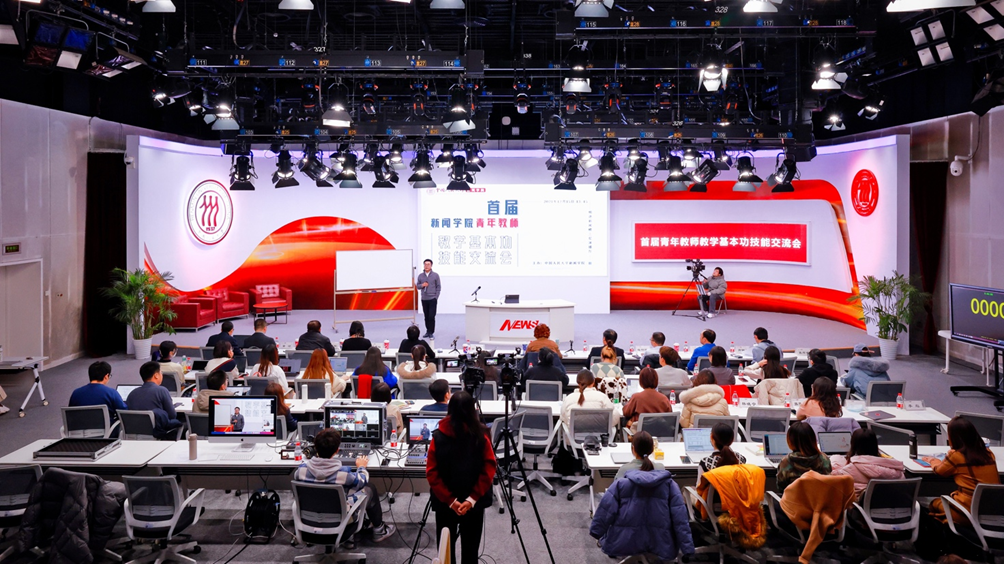
Hu Baijing, Standing Committee Member of the Party Committee and Vice President of Renmin University of China, attended the meeting and delivered a speech. Song Lifang, Executive Vice Chairman of the Student Work Committee of Renmin University of China, Jiang Xiangxian, Director of the Teaching Supervision Office of Renmin University of China, Geng Jianxin, Professor and Teaching Supervision Expert of Renmin University of China, Zhang Huifeng, Secretary of the Party Committee and Vice President of the School of Journalism and Communication of Renmin University of China, Zhang Di, Director of the Department of International Journalism and Communication of the School of Journalism and Communication attended the meeting. Li Biao, Vice President of the School of Journalism and Communication, presided over the meeting.
The exchange was headed by the head of the judging panel Zhang Zheng, a national teaching master and professor of the School of Journalism and Communication Professor Zhou Weihua from School of Journalism and Communication; Professor Qian Minghui, Vice Dean of School of Information Resource Management, winner of the First Prize, Best Teaching Plan and Best Presentation Award of the 10th Basic Teaching Skills Competition for Young Teachers in Beijing Universities; Professor Song Yang from School of Economics, winner of the First Prize and Best Presentation Award of the 10th Basic Teaching Skills Competition for Young Teachers in Beijing Universities; Gao Yangguang, Associate Professor of the School of Law; Huang He, Professor of the School of Journalism and Communication, winner of the second prize of the Beijing Young Teachers' Basic Teaching Skills Competition in Literature and History; the second prize of the Beijing First Teaching Innovation Award, winner of the Renmin University of China Teaching Excellence Award, and Wang Shuliang, Top Ten Teaching Pioneers of Renmin University of China and Associate Professor of School of Journalism and Communication, served as the judge.
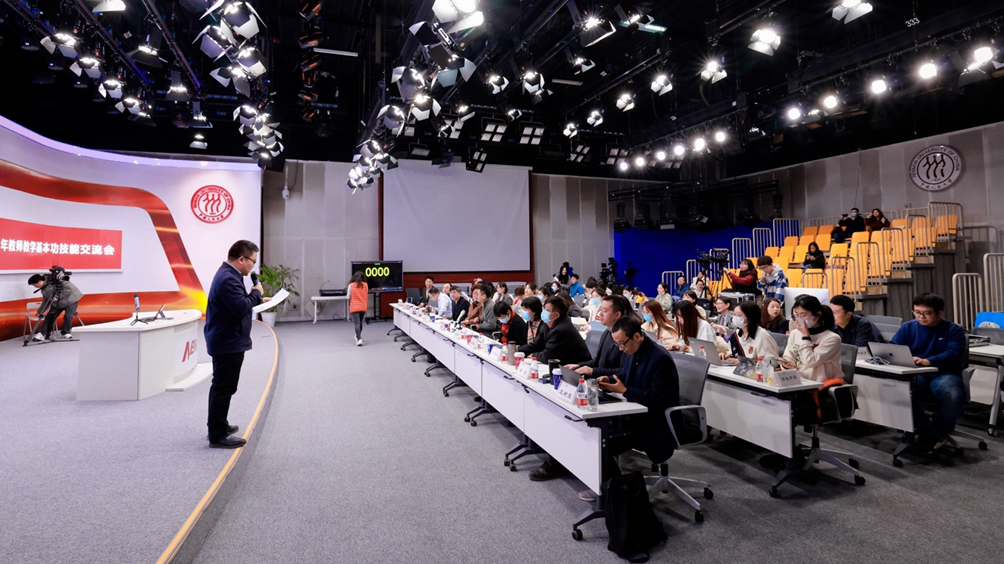
In his speech, Hu Baijing expressed his high hopes for the young teachers. He pointed out that young teachers should regard teaching as their lifelong ambition. Looking back, teachers such as Fang Hanqi, Gan Xifen, He Zihua, Zheng Xingdong, Tu Guangjin, Zhang Zheng and others have taught and researched together, and have set an example for us in teaching and educating people. Their academic tree is evergreen because their ideas, knowledge, methods and virtues are passed on from generation to generation. As Mencius said, "There is no other way to learn, but to seek peace of mind." Our predecessors linked learning with life and moral sentiments, and embraced our hearts with learning. For this reason, Hu Baijing encouraged the young teachers to return to the tradition of academics and let academics become the way of life. He emphasized that young faculty members should be diligent in teaching, on the one hand, they should look at and learn teaching as a specialized skill, draw nutrients from their predecessors' teaching experience, pass on the fire, enhance their expression and embellish their logic from each lesson preparation and post-class review, and be responsible for their students; on the other hand, they should realize that teaching and research complement each other and promote each other. Hu Baijing said that for teachers in a first-class university, it is impossible to talk about the hard skills of teaching without solid basic skills of scientific research. Teachers must build a solid foundation of theory, both as a great scholar and a great XianSheng.
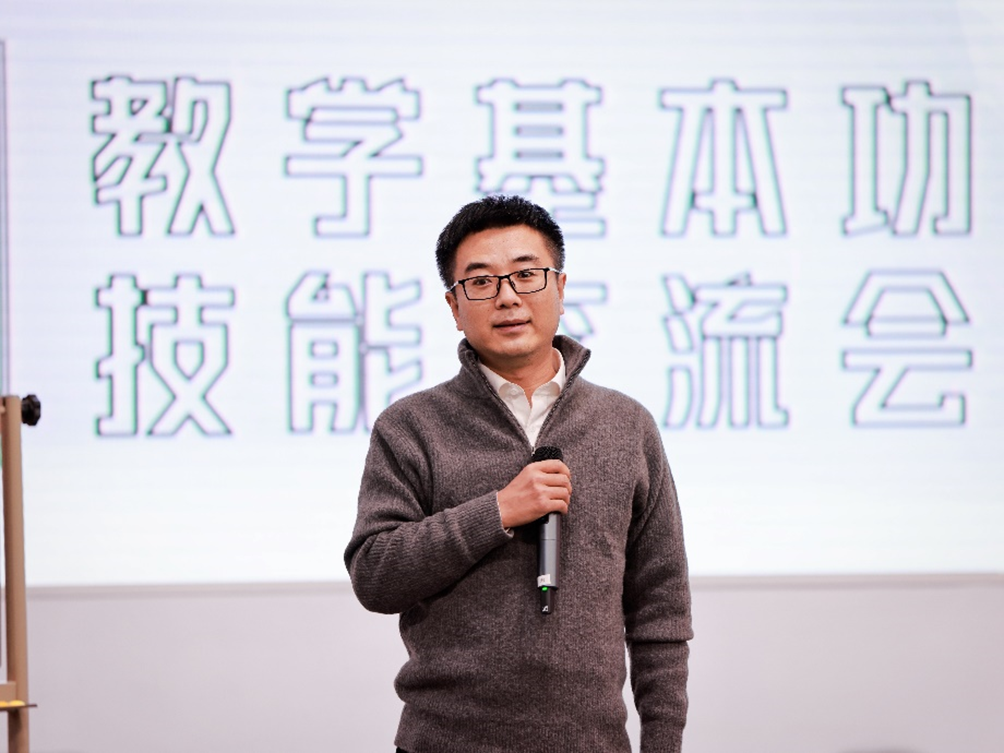
Song Lifang expressed her encouragement to the young teachers participating in the School of Journalism and Communication and hoped that the young teachers would further solidify their basic teaching skills, improve their teaching level and classroom quality during the exchange and learning, so that they could better carry out practical teaching activities in the future.

Jiang Xiangxian expressed her gratitude for the exchange platform built by the School of Journalism and Communication, which gave more young teachers the opportunity to learn from each other. Young teachers are the hope and future of the university and an important force in undertaking teaching work. The university always attaches importance to the growth and development of young teachers, and has invested a lot in teaching ability, teaching motivation, teaching training and teaching supervision. She hopes to promote communication and interaction among young teachers through teaching supervision, and also welcomes timely communication and feedback from the supervisory group.
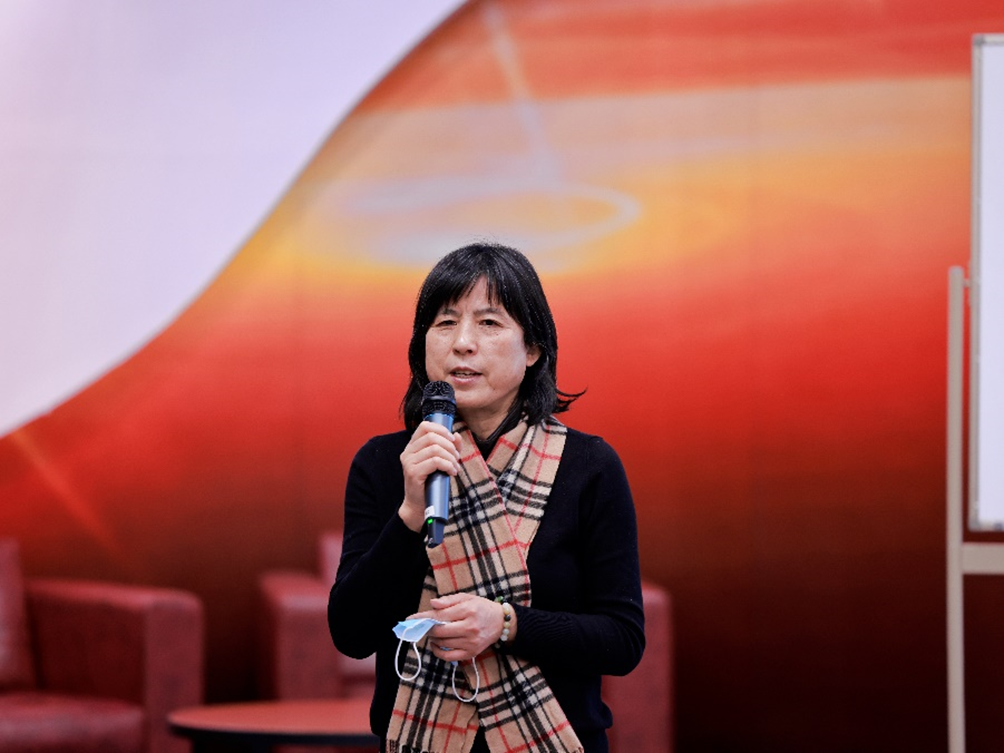
In the exchange session, eight young teachers talked with ease and showed their respective styles.
Dong Chenyu took the topic of "What is social media - nothing is as simple as it seems at first glance" and retraced the sprouting of social media in the ancient Roman graffiti wall and Tang poems and Song lyrics, and thus taught everyone the way to learn and think: the first step is to learn to dispel the charm, from what social media "is" to what social media "is not"; the second step is to change the thinking, from what is "new" in social media to what is "old" in social media, so as to understand the chemical reaction arising from the integration of human social nature and new media technology.

Liu Dong gave a lecture on "The Emergence of Network Behavior from the Perspective of Evolutionary Behavior". He used the ancient apes combing each other's hair as a guide to discuss how network behavior emerged and whether network technology can change the attributes of human offline actions.
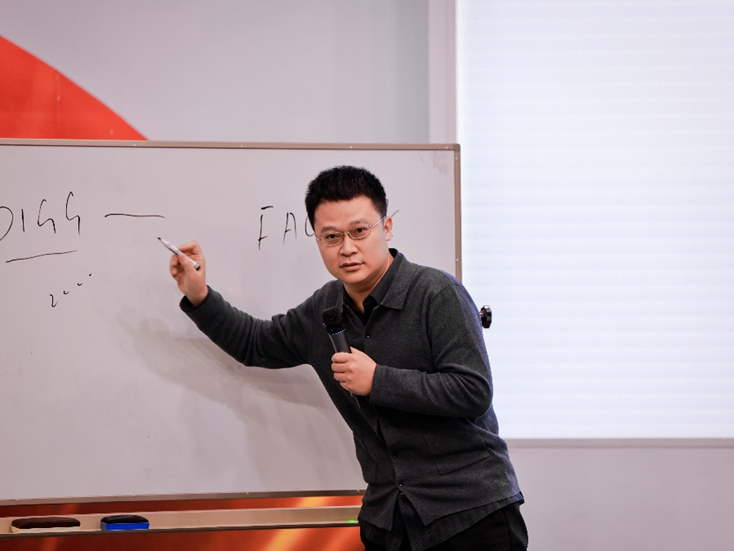
Pan Wenjing shared the lesson "Fundamentals of Social Network Analysis". Starting from the definition and elements of networks, she explained how to express networks and their characteristics in a matrix. With her wonderful classroom design, calm and relaxed lecture, and clear explanation, Ms. Pan received a round of applause.

With the topic of "Natural Language Processing: Decoding the Cinderella Complex in Stories", Ms. Tana explained what natural language processing is with in-depth expressions and easy-to-understand examples, and combined it with a study to deepen the understanding of the knowledge.
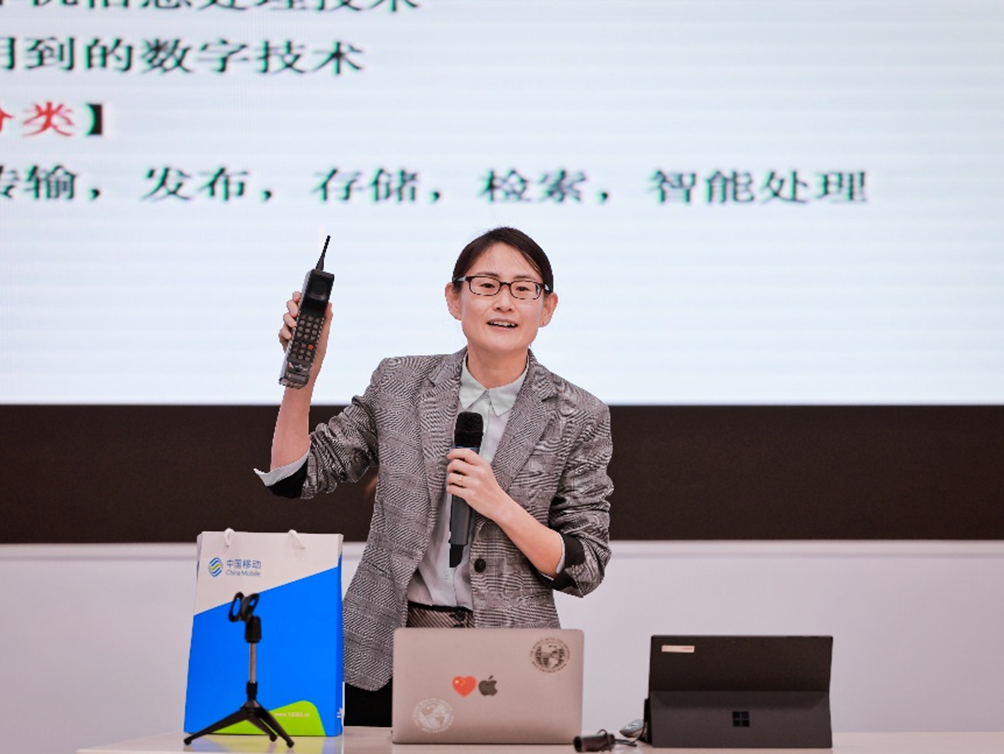
Yang Qiguang opened his lecture on "Media Technology and the Early Red Journalism of the Party" with a game of "Media Archaeology". When introducing the role of telegraph and radio in the Party's journalism, he also invited students to experience how to send telegraphs, creating a good interactive atmosphere in the classroom, which was well received by the judges.
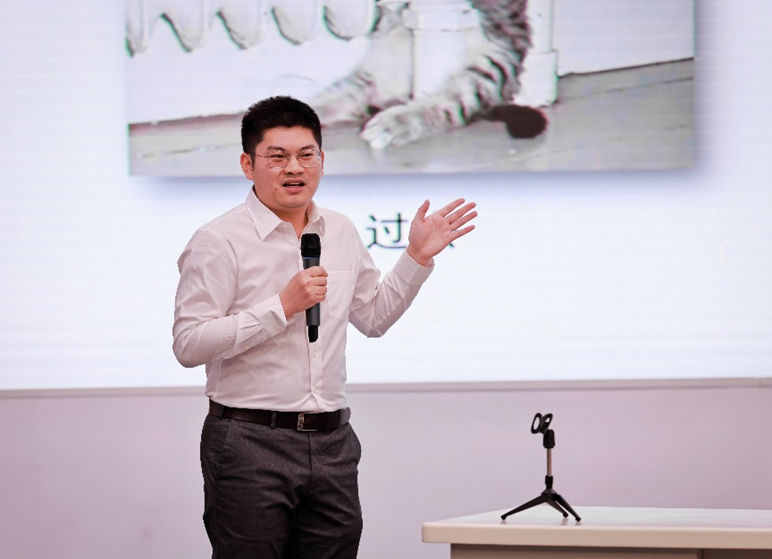
Yan Yan selected one of the lectures of the Audiovisual Communication Principles course, "Priming Theory", and systematically sorted out the development history and cutting-edge innovation of the theory from psychology to communication. She conducted a live experiment to let the students understand what is the priming effect in information processing, and also motivated the students to present in the class.

Zhao Xiaoman shared a lesson on "Audience Perception of Strategic Communication". She introduced the topic with a set of pictures and explained how strategic communication affects audience's perception, attitude and behavior from three dimensions of receiving, organizing and interpreting information. Ms. Zhao added a lot of psychological and sociological knowledge to her presentation, giving the students a broader academic perspective.
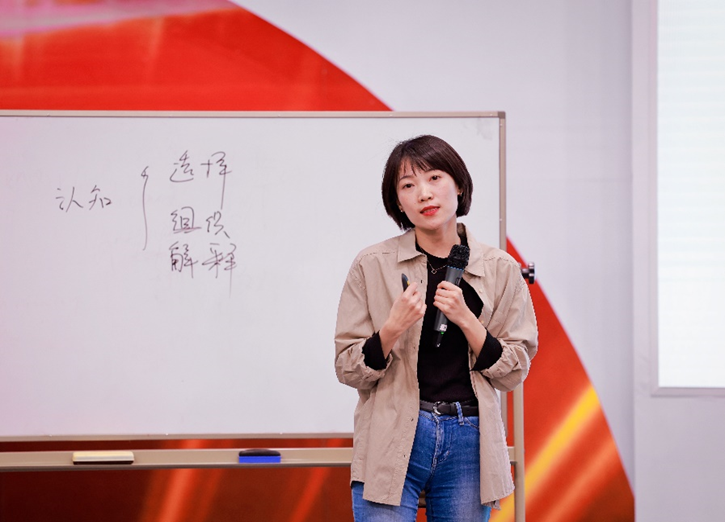
Zhou Yushu took "Is Internet Survey Reliable? As the topic, he explained what is a standardized and rigorous probability sampling survey, and how to achieve a rigorous probability sampling survey by using the Internet. Mr. Zhou Yubi selected cases such as the 7th National Census and the survey methods of Pew and Gallup in the U.S. for vivid explanation, which enhanced the classroom appeal.

Zhang Zheng pointed out that the eight teachers were well prepared, logical and fluent, showing the style and vitality of the new generation of teaching force in the School of Journalism and Communication. In this exchange session, some teachers chose objects and stories to introduce the course topic, which was helpful for students to enter the classroom situation quickly and understand the course knowledge, which shows the teachers' deep efforts in teaching organization.

Zhou Weihua said that he gained a lot from the teaching style and content of the different teachers. From basic theory to cutting-edge hotspots, from journalism history to media technology, several teachers combined theory and practice closely, showing solid teaching fundamentals.
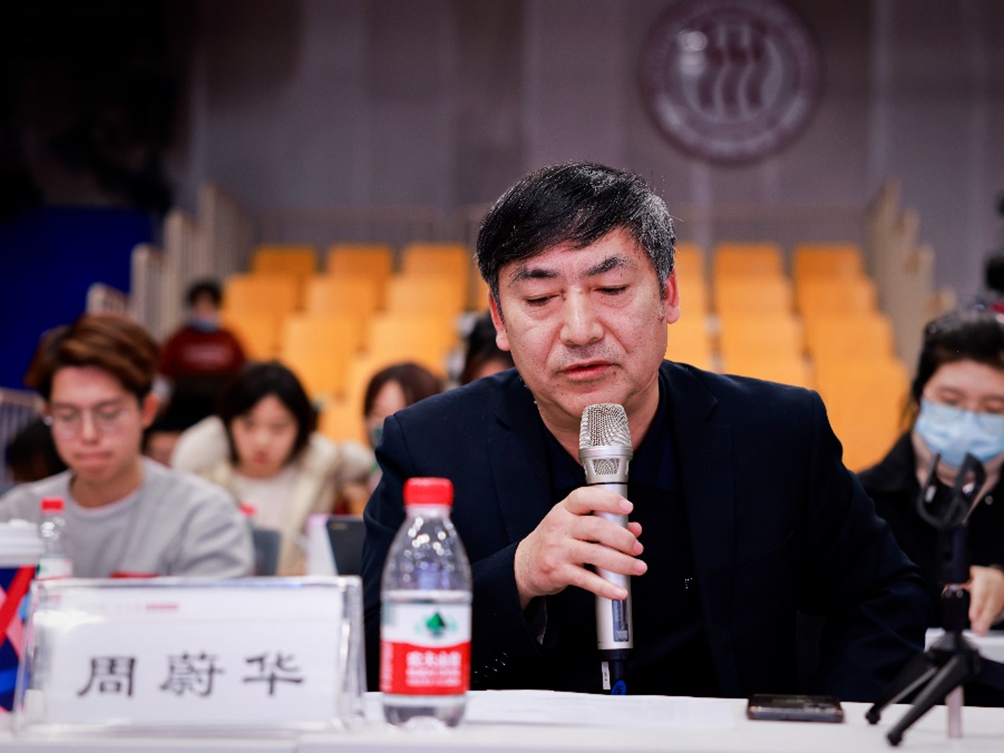
Geng Jianxin was pleased with the performance of the young teachers and encouraged them to continue to persevere and sharpen their teaching skills in practice. At the same time, he also made suggestions for the young teachers present to further improve their teaching and enhance their teaching skills.
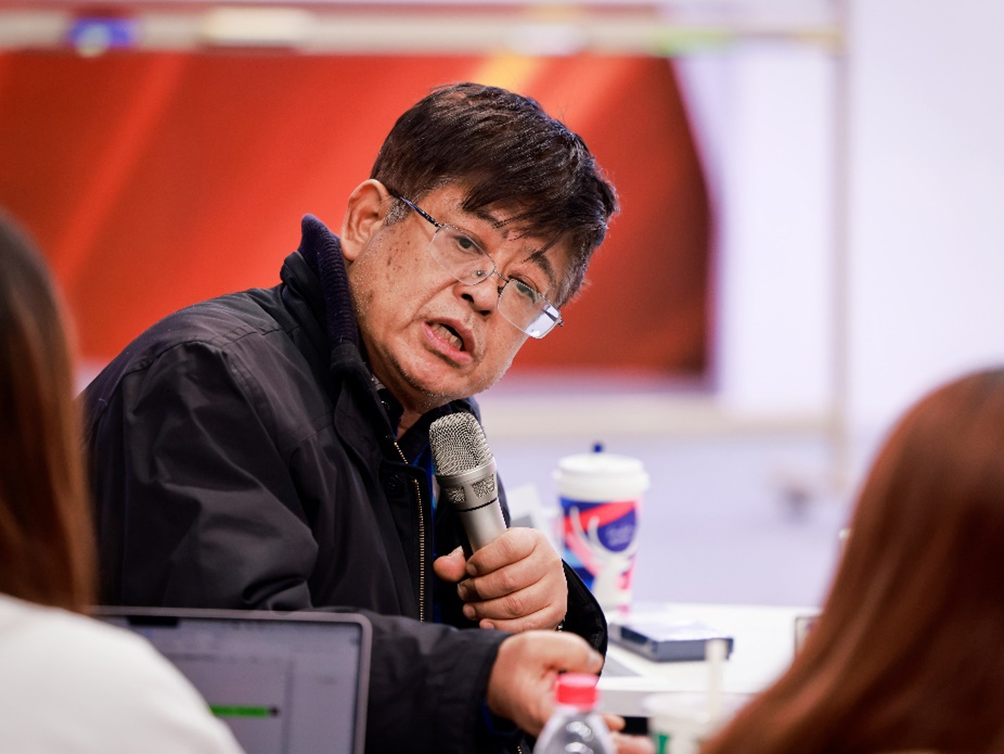
Qian Minghui combined his experience of participating in the Beijing Young Teachers' Basic Teaching Skills Competition to provide two references for the young teachers present: firstly, to grasp the pace of teaching and pay attention to the overall fluency of the course; secondly, to pay attention to the content structure and present completely the introduction, the content and the summary.
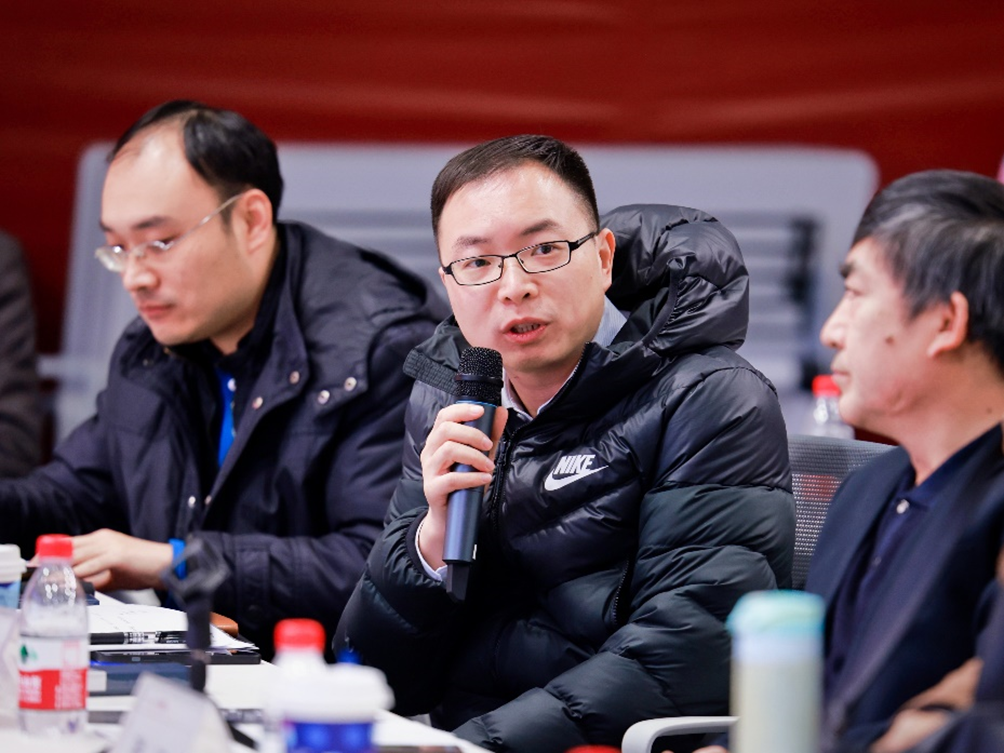
Song Yang said that the eight young teachers competed on the same stage and presented a wonderful sharing session. He also pointed out that on the basis of mastering the basic teaching skills, we can further think about how to enhance the depth of course content and value leadership, so as to achieve a close combination of academic and real life.
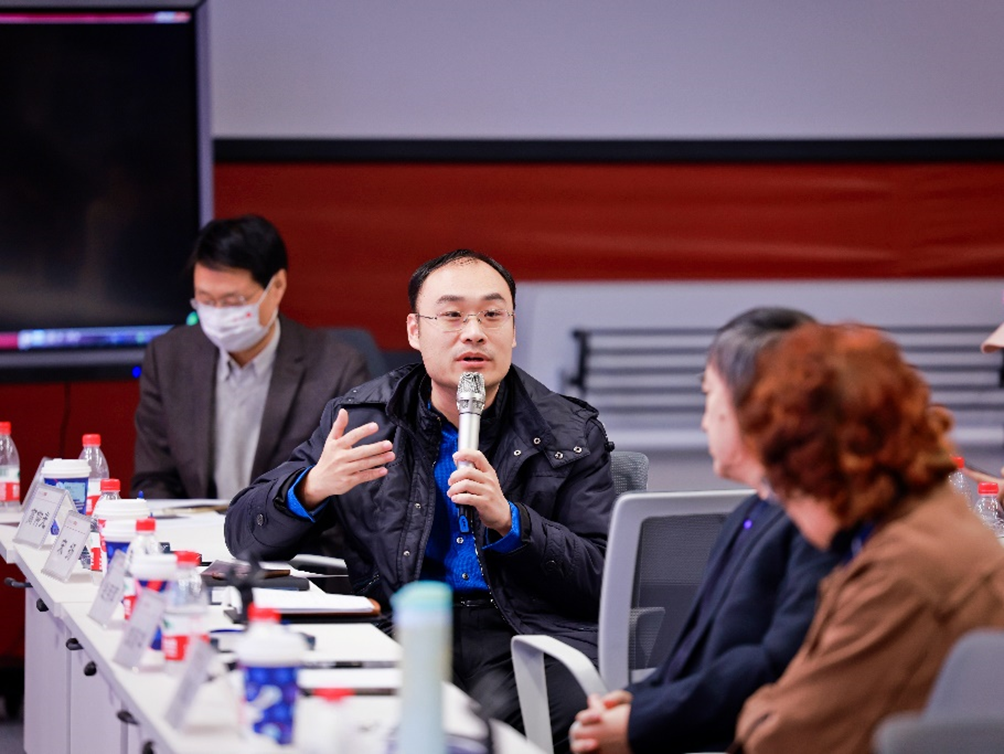
After the votes of the experts and students, the teaching excellence award and the most popular student award were selected.
The exchange meeting of basic teaching skills of young teachers in the School of Journalism and Communication focused on the growth and development of young teachers, aiming to further strengthen the echelon construction, capacity cultivation and teaching innovation of the teaching team in the School of Journalism and Communication through mutual promotion of the old and the new and peer-to-peer exchange.
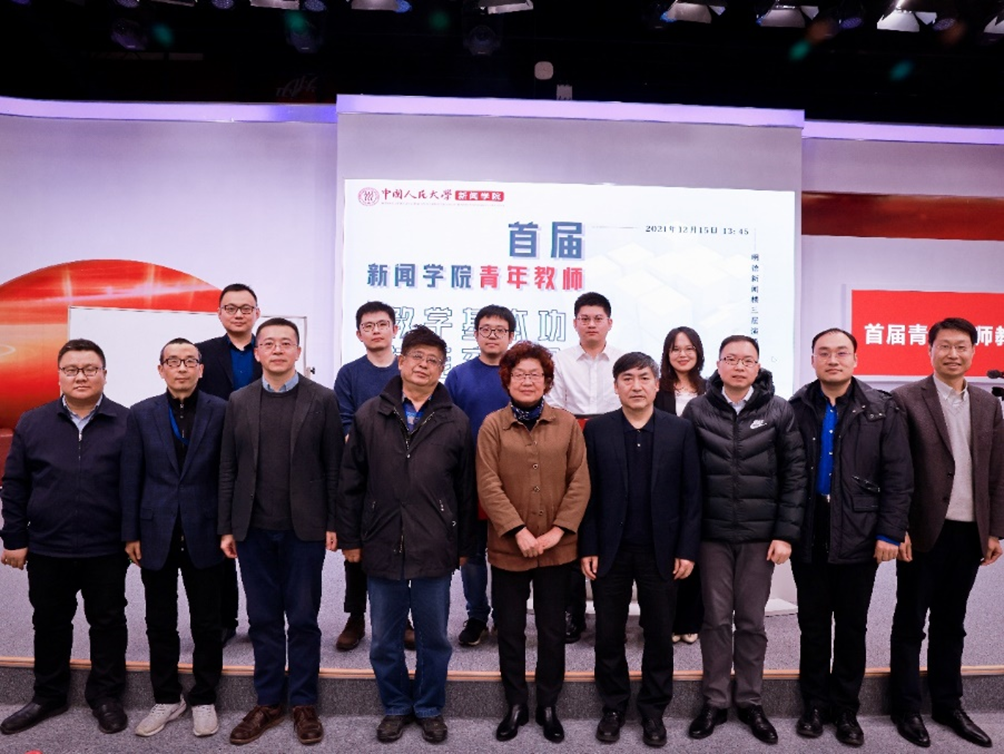
Text: Hao Zeyu
Image: Peng Chunting
Editor: Wen Yingying, Chen Ran
Instructor: Li Biao, Sun Quan
Translator: Zhang Congyuan



